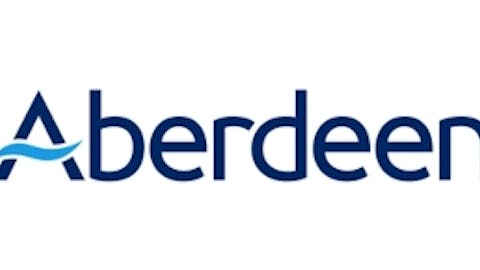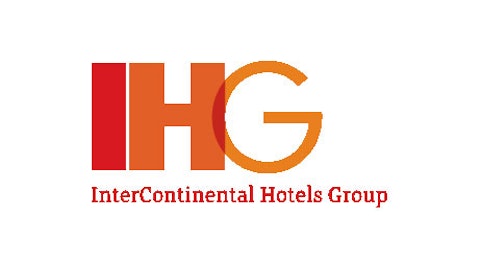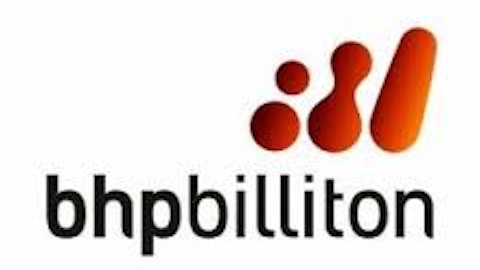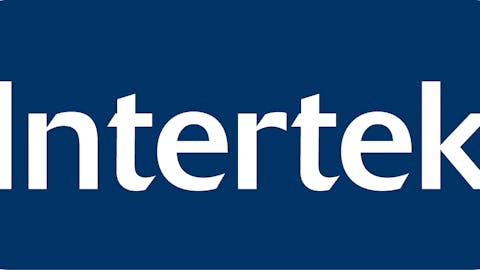LONDON — The last five years have been tough for those in retirement. Portfolio valuations have been hammered and annuity rates have plunged. There’s no sign of things improving anytime soon, either, as the eurozone and the U.K. economy look set to muddle through at best for some years to come.
A great way of protecting yourself from the downturn, however, is by building your retirement fund with shares of large, well-run companies that should grow their earnings steadily over the coming decades. Over time, such investments ought to result in rising dividends and inflation-beating capital growth.

Over the last few weeks, I’ve looked at United Utilities Group PLC (LON:UU), Eurasian Natural Resources Corporation (LON:ENRC), Intertek Group plc (LON:ITRK), InterContinental Hotels Group PLC (LON:IHG) and Aberdeen Asset Management plc (LON:ADN).
Let’s take a look at how each of them scored against my five key retirement share criteria:
| Criteria | Eurasian Natural Resources | United Utilities | InterContinental Hotels Group | Intertek Group | Aberdeen Asset Management |
|---|---|---|---|---|---|
| Longevity | 2/5 | 2/5 | 3/5 | 3/5 | 2/5 |
| Performance vs. FTSE | 2/5 | 3/5 | 5/5 | 5/5 | 5/5 |
| Financial strength | 3/5 | 3/5 | 4/5 | 4/5 | 5/5 |
| EPS growth | 3/5 | 3/5 | 4/5 | 5/5 | 5/5 |
| Dividend growth | 1/5 | 3/5 | 4/5 | 4/5 | 5/5 |
| Total | 11/25 | 14/25 | 20/25 | 21/25 | 22/25 |
Eurasian Natural Resources
A history of dodgy corporate governance, problematic debt levels, and a looming dividend cut all take the shine off miner ENRC’s recently improved production figures. To be fair, ENRC does have some decent assets, but its debt-fueled expansion drive has left it looking short of cash and vulnerable to an opportunistic takeover.
The company is expected to cut its dividend by 50% this year, leaving ENRC shares with a likely forward yield of just 1.8%, well below the solid 3% or more offered by mega-cap miners BHP Billiton and Rio Tinto. The investment case for ENRC is far more speculative and while investors may end up with a good result, this company simply isn’t suitable for an income-focused, low-maintenance retirement portfolio.
United Utilities
It may be surprising to see a high-yielding utility stock score so badly in this review, but at present, I don’t think United Utilities is a very good example of this type of company. It has lagged the FTSE 100 over the last 10 years, during which it has carried out a confusing mixture of acquisitions and divestments and been forced to raise 1 billion pounds from shareholders in a rights issue.
United’s identity as a regional water and sewage company is now more clearly defined, but like its water peer Severn Trent, United currently trades on a forward price-to-earnings ratio (P/E) of 17, making it look quite expensive. For retirement investors, I believe electricity utilities currently offer much better value — National Grid currently has a forward P/E of just 13.4 and offers a forecast dividend yield of 5.7%, considerably higher than the prospective 4.8% on offer from United.
InterContinental Hotels Group
InterContinental Hotels’ brand-focused business model means that it owns very few hotels, preferring instead to license its brands to third-party hotel operators. The strength of InterContinental’s’ brand portfolio, which includes Holiday Inn, means that it is able to negotiate favorable deals with hotel operators and enjoy healthy profit margins. In 2011 and 2012, InterContinental reported operating margins in excess of 33%, with much of this profit converted directly into free cash flow, helping fund strong dividend growth without reducing dividend cover.
Although it isn’t a cheap stock, InterContinental Hotels’ sustainable and profitable business model could make it a good retirement share, especially if you manage to buy it on any temporary weakness.
Intertek Group
Intertek is one of those FTSE 100 companies you probably don’t know much about. It’s a global business that specializes in providing all sorts of testing and certification services to industry and commerce. This is a profitable business, as Intertek’s 2012 results — which were published earlier this week — showed. The firm’s revenue rose by 17% and its operating profits rose by 19% during 2012, lifting Intertek’s adjusted operating margin by 0.2% to 16.3%.
Intertek’s share price has risen by 899% over the last 10 years, leaving the company’s shares trading on a P/E of 26. Although shareholders were rewarded with a 22% dividend increase this year, this payout still only provides a dividend yield of 1.2%. Whether this is enough for Intertek to earn a place in your retirement portfolio is an individual decision — for me, it’s not.
Aberdeen Asset Management
Aberdeen Asset Management plc (LON:ADN)comes top in this review, with one of the highest scores I’ve ever awarded — 22/25. The reason for this is simply that Aberdeen has performed extremely well since its foundation in 1983. The company’s only real weakness is its short history, especially when compared to peers such as Standard Life and Old Mutual, which has been in business for nearly 200 years.
Since 2007, Aberdeen Asset Management plc (LON:ADN) has delivered average annual operating profit growth of 56%, revenue growth of 20% and dividend growth of 15.9%. Despite this, the current negative sentiment toward financial shares means that Aberdeen currently trades on a forward P/E of just 14.7 — well below the FTSE 100 average, despite expectations for another strong year of growth.
Aberdeen Asset Management plc (LON:ADN) Asset Management shares have a prospective dividend yield of 3.4% and look to me like a very reasonably priced alternative to bank shares.
2013’s top income stock?
The utility sector is known for its reliable, above-average dividends, but The Motley Fool’s team of analysts has identified one FTSE 100 utility share that they believe offers a particularly high-quality income opportunity.
The company in question offers a 5.7% dividend yield and the Fool’s analysts believe that it could be worth up to 850 pence per share — offering new investors a potential 20% gain on the current share price of around 700 pence.
The article Are These the Ultimate Retirement Shares? originally appeared on Fool.com and is written by Roland Head.
Roland Head owns shares in Rio Tinto but does not own shares of any of the other companies mentioned in this article. The Motley Fool has no position in any of the stocks mentioned.
Copyright © 1995 – 2013 The Motley Fool, LLC. All rights reserved. The Motley Fool has a disclosure policy.




